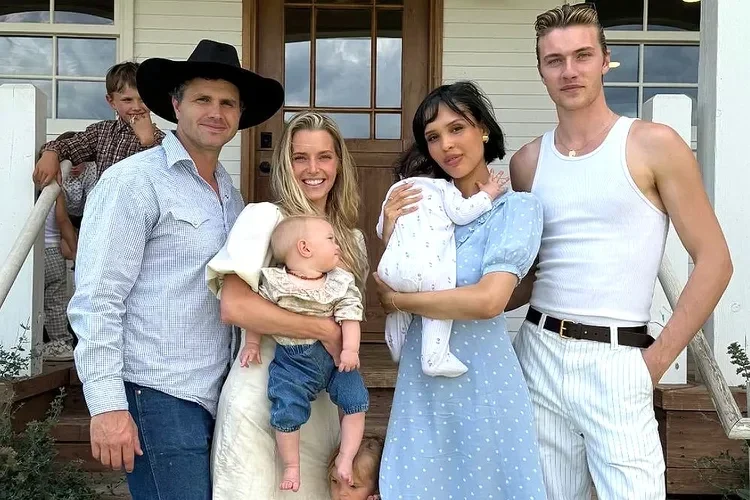
The entire premise of the online tradwife movement is to popularise women who believe in and practise traditional gender roles in their marriage: the a man is the breadwinner and the woman stays at home to look after the children.
The two women leading this tradwife movement are Ballerina Farm's Hannah Neeleman and TikTok star Nara Smith.
Both women post infuriatingly perfect content on their feeds: making their husband's favourite meal from scratch, wrangling their large families, or tending to the family's milk cows. Their posts rack up millions of views.
With this has come a lot of questions about the reality of the tradwife lifestyle behind the glossy filters of a phone camera, as well as questions about what happens when a 'housewife' becomes more successful than her husband.
Is the 'homemaker' title simply a façade when really you're the breadwinner? Let's investigate.
Negativity towards the tradwife lifestyle reached fever pitch in July.
Along with Hannah and Nara's viral fame has come criticism of what their content does: for feminism as a whole and for their own potential as human beings.
A recent feature in the New York Times painted Neeleman as a successful Juilliard ballerina who had met a conservative man and changed everything about herself to fit his ideals.
She says this couldn't be further from the truth.
"We were taken back, however, when we saw the printed article which shocked us and shocked the world by being an attack on our family and my marriage. Portraying me as oppressed with my husband being the culprit," Neeleman said. "Together we've built a business from scratch, we brought eight children into this world, and prioritized our marriage all along the way."






























































































